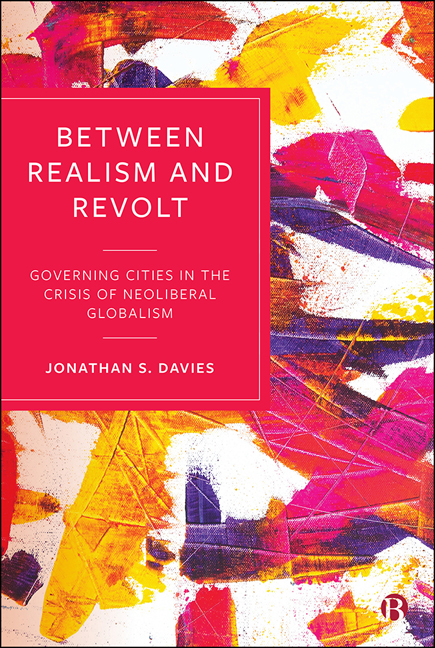Book contents
- Frontmatter
- Dedication
- Contents
- List of Tables
- Contributing Investigators
- Acknowledgements
- Preface
- Introduction
- 1 Studying Urban Political (Dis)Orders
- 2 Dynamics of Crisis, Neoliberalisation and Austerity
- 3 Austerity and State Rescaling
- 4 Consolidating Neoliberal Austerity Regimes
- 5 Regime Divergence and the Limits of Austere Neoliberalism
- 6 Resisting Austerity: Resonant Solidarities and Small Wins
- 7 The ‘Activity of Ruling Groups’: Containment, De-mobilisation and Fragmentation
- 8 Reading the Conjuncture: (Dis)Ordering Dynamics in the Crises of Neoliberal Globalism
- Afterword: Into the Pandemic
- Notes
- References
- Index
1 - Studying Urban Political (Dis)Orders
Published online by Cambridge University Press: 05 January 2022
- Frontmatter
- Dedication
- Contents
- List of Tables
- Contributing Investigators
- Acknowledgements
- Preface
- Introduction
- 1 Studying Urban Political (Dis)Orders
- 2 Dynamics of Crisis, Neoliberalisation and Austerity
- 3 Austerity and State Rescaling
- 4 Consolidating Neoliberal Austerity Regimes
- 5 Regime Divergence and the Limits of Austere Neoliberalism
- 6 Resisting Austerity: Resonant Solidarities and Small Wins
- 7 The ‘Activity of Ruling Groups’: Containment, De-mobilisation and Fragmentation
- 8 Reading the Conjuncture: (Dis)Ordering Dynamics in the Crises of Neoliberal Globalism
- Afterword: Into the Pandemic
- Notes
- References
- Index
Summary
Introduction
Chapter 1 develops the framework through which urban political (dis)orders are explored in subsequent chapters. It begins by engaging debates about critical vantage-point: diagnosing the workings of capitalist power through critical political economy, privileging disruptive potentialities in acts of resistance, or considering powerresistance relationally. It advances a Gramscian approach to urban regime analysis, through which it pivots between perspectives, and explores the encounter between power and resistance in struggles over the normalisation, disruption and transformation of austere neoliberalism (Las Heras, 2019). The discussion is further framed by neo-Gramscian conjunctural analysis (Hall et al, 1978), which derives from Marxist thinking about the history and periodisation of capitalist development and phases of struggle. Conjunctural analysis was brought to renewed prominence in the urban field by Peck's twopart essay positing an incipient phase of late entrepreneurialism (2017a, 2017b), which is allied to the broader thesis of an interregnum in the hegemony of neoliberal globalism (Stahl, 2019). The problem arising from this framing is how the dynamics of crisis, neoliberalisation, austerity and resistance play out in cities and constitute urban political (dis)orders, and what these in turn reveal about conjunctural continuity and change. The remaining chapters employ this perspective to explore empirical research in the eight cities.
Studying urban political (dis)orders: between pessimism of the intellect and optimism of the will?
The concept of urban political (dis)orders is positioned as a contribution to recent debates about the most fruitful way to approach critique and transformation. Means and ends blur, but two broad perspectives can be discerned, each drawing on a multiplicity of theoretical traditions. Those influenced by Marxism and modern socialist theory focus on the critique of capitalist political economy and see the quest to replace it in terms of project-based systemic struggles, which occur through revolutionary or reformist means (for example, Luxemburg, 1900; Miliband, 1961; Callinicos, 2006). Anarchist, autonomist, open Marxist and libertarian socialist currents, are more concerned with negating power, interstitial struggles for autonomy and pre-figurative practices unbound from, uncontained by and overflowing capitalism and the state.
- Type
- Chapter
- Information
- Between Realism and RevoltGoverning Cities in the Crisis of Neoliberal Globalism, pp. 19 - 46Publisher: Bristol University PressPrint publication year: 2021

